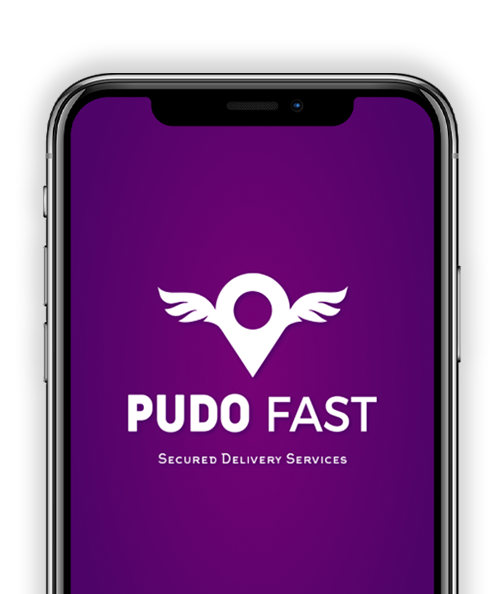
Introduction: What is Document Delivery in Banking and Finance
In banking, finance, and insurance, paper still carries power. Loan deeds, investment agreements, compliance filings, and mortgage papers all play a role in major financial decisions. While email and cloud sharing have accelerated some workflows, not every document can or should be sent digitally.
That’s where document delivery comes in. In this sector, it doesn’t just mean “sending paperwork.” It means safeguarding highly confidential information, ensuring it arrives in time for critical deadlines, and keeping transactions moving in a way that builds trust.
For professionals in New York where financial activity moves as quickly as the city itself, efficient delivery is a quiet but essential part of the system.
Importance of Timely Document Delivery for Financial Transactions
Banking transactions are often time-sensitive. Consider a commercial property deal: if contracts aren’t delivered and signed before the closing date, buyers risk losing the property. Or in personal finance, a family waiting on mortgage approval may lose a favorable interest rate because supporting documents were delayed.
Timely delivery prevents:
- Missed deadlines: The operations in capital markets, loans, and insurance usually have very strict timelines in which filings must be made.
- Customer frustration: Customers demand that financial institutions run with accuracy. Any delay is a sign that the bank has lost the trust of its customers.
- Operational bottlenecks: The slow document flow can impede the performance of various departments, such as underwriting and compliance; thus, there is a domino effect of inefficiency.
In financial services, the precision of the delivery and speed are equally important, as the latter may be for small errors that can cost millions.
Key Challenges in Banking Document Delivery
If document movement were simple, banks would not be investing so heavily in secure courier partnerships. The reality is that financial documents face several logistical and security hurdles:
- Security risks: Standard courier systems often don’t have the encryption or tracking capabilities needed for sensitive information. A misplaced envelope could expose customer data.
- Urban complexities: In New York, traffic delays, package theft, and missed drop-offs are everyday realities. For time-critical documents, these risks are unacceptable.
- Human error: Wrong addresses, incomplete handovers, or unverified recipients can result in regulatory violations.
- Client schedules: Many customers are not available during working hours. For banks, this creates failed delivery attempts and repeated costs.
These issues highlight why organizations need to move past the standard couriers and find document logistics solutions more tailored to their financial workflows.
Secure Document Delivery as a Means to Protect Sensitive Financial Data
Banking documents are the most sensitive materials that are handled in the open, and they are only ranked behind hospitals or government agencies in terms of sensitivity. They have personal identification, signatures, account numbers, and legal details, which are the easiest things for hackers to use if the documents are gotten by the wrong hands.
That’s why secure banking delivery methods have become the industry standard. Encrypted one-time passwords (OTPs), tamper-proof lockboxes, and live GPS tracking are some of the features that guarantee only the recipient who is expected will have access. Such secure document transfer does not merely shield banks from hackers; it also provides the assurance to their clients that their data is safe from breaches.
To illustrate, a wealth management firm that is sending out quarterly statements can use secure couriers to make sure investors are never in a position to worry about the interception of their statements. This move, which is done before the need arises, is what makes a firm stronger when it comes to the element of trust in the financial services sector.
Role of Document Logistics Solutions in Finance
Banks rarely manage their last-mile document flow internally. Instead, they partner with specialized providers offering financial courier services. These couriers are trained to handle highly confidential, time-bound transfers where mistakes aren’t tolerated.
Unlike generic delivery companies, a dedicated confidential document transport partner ensures:
- Verified handovers with ID checks.
- Real-time updates for both sender and receiver.
- Flexible delivery times to match client schedules.
This isn’t just about moving papers. It’s about adding a layer of reliability and compliance to an already complex financial ecosystem.
Digital vs. Physical Courier Services for Banks
The financial sector has embraced digitization, e-signatures, encrypted emails, and cloud-based platforms, which have sped up many processes. However, not everything is suitable for digitalization.
- Original signatures: A few contracts, for example, loan agreements and wills, are still required by law to be signed in wet ink.
- Regulatory filings: Some agencies require original hard copies as part of compliance.
- Customer preference: Quite a few clients, particularly in high-value transactions, still believe that a physical, stamped document is the most trustworthy way to work with them.
This is the reason why banks use both digital workflows and banking document management systems, together with secure physical delivery. It is not a matter of choosing one over the other. It is about constructing a hybrid model that can accommodate different transaction types.
Improving Customer Experience Through Efficient Document Delivery
Financial services compete not just on rates but on experience. If a bank can deliver documents to a client’s door, at their chosen time, in a secure way, it creates a level of convenience that digital-only solutions can’t always match.
Efficient financial document delivery adds value by:
- One of the ways to provide better service is by allowing clients to get their documents when the office is closed.
- Another way is by essentially opening up the whole process for the client via real-time GPS tracking, so the client has real-time information on where their package is.
- Moreover, security is a huge factor when giving information or delivering documents. Therefore, security doesn’t only come from the enclosed packaging being tamper-proof but also from the whole chain of custody being verified; in other words, there are no handovers without confirming the identity of the person.
In such a lifestyle, clients in New York can manage their hectic schedules, including work, family, and financial matters. The convenience of scheduling safe deliveries, either at home or the office, generates both faith and loyalty. When changing your supplier is so easy, a company earns by paying attention to such little things.
Compliance and Regulatory Requirements in Financial Document Handling
Banks are at the receiving end of various regulations, which constitute some of the most challenging frameworks in the world. Compliance is not an option; it’s a must for them to survive.
Courier services working for banks have to be compatible with these frameworks by:
- Producing comprehensive logs of interactions with the delivery process for each delivery try.
- Taking security measures to limit access to only authorized personnel.
- Delivering the files on time to avoid paying heavy fines.
By installing a sensitive document courier system that features traceability, institutions avoid compliance failures and, at the same time, they are able to keep their operational efficiency high. In reality, this translates into fewer disputes occurring, fewer fines, and a better relationship with regulatory authorities.
Successful Document Delivery Solutions in Banking
One Brooklyn-based mortgage lender faced frequent complaints about delays and lost documents when relying on standard couriers. After shifting to specialized document delivery services Brooklyn firms could trust, they experienced a measurable difference. Loan approvals moved faster, documents stopped going missing, and customer satisfaction scores improved noticeably within one quarter.
In the same way, a Manhattan wealth management company incorporated a portable lockbox delivery for confidential agreements. This step removed all the worries about stolen or tampered packages, thus providing the clients with a very clear and tangible reason to continue the relationships. These whitepapers showcase that implementing logistics with the use of modern technology is not an expense that sits on the shelf of a corporate budget, but rather a company’s competitive advantage.
Trends and innovations in document delivery in the financial service sector
Transitions of document handling in the finance sector are marked by integration, customer focus, and safety. Many reforms dictate the field already.
- Hybrid models: Experimenting with combining electronic signatures with traditional physical delivery to satisfy regulatory requirements and user preferences.
- AI-driven routing: Employing machine learning for efficient city deliveries, reducing the number of missed time slots.
- Portable lockbox solutions: These allow delivery persons to take security straight to the customer’s door, thus lowering the risk of theft.
- Green delivery: Banks are more likely to opt for environmentally friendly couriers as a step towards sustainability commitments.
The change in the industry will not be focused on replacing paper with digital, but rather it will be about using designs that ensure security and respect regulations and customer expectations.
Final Charge
When it comes to documents in finance, the term paperwork is an understatement. They are contracts, promises, and compliance records. If these documents are mishandled, the cost might not only be in money but also in terms of reputation.
Therefore, a secure, efficient, and flexible delivery is a must-have for banks, wealth managers, and lenders. The demand from both professionals and clients in New York is that the documents should be delivered at the agreed time, securely, and without any unnecessary inconvenience.
The smartest delivery solutions financial institutions are investing in are not merely about the protection of sensitive information; rather, it is an investment in trust, and in banking, trust is the basis of everything.




